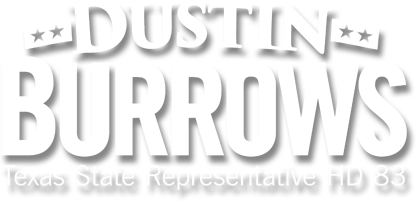Legislation will help level the playing field between Texas small businesses and national (remote) sellers
Today, Rep. Dustin Burrows (R-Lubbock) filed House Bill 1525 which would ease the administrative burden on small to medium-sized remote sellers that are using the national providers’ platforms by requiring the providers to collect sales tax. This would accelerate collection of taxes that are currently due under Texas law on sales of taxable items by remote sellers. This administrative change could potentially mean an additional $300 million in state and local sales tax revenue for Texas in the first full fiscal year of collections. Currently, national marketplace providers have no responsibilities related to the taxes due on sales made by third party sellers on these platforms.
In the Senate, House Bill 1525 is a companion bill of Senate Bill 890, filed by Senator Jane Nelson (R- Flower Mound).
Rep. Burrows said, “The legislation defines marketplace providers as those that own or operate a marketplace and process sales or payments for third-party sellers. Marketplace providers such as Etsy Inc., eBay, and Amazon would have all the rights and duties of a seller for sales made through the marketplace, including collection and audit responsibilities.”
Senator Nelson said, “This legislation is needed to ensure that we fairly implement the Supreme Court decision regarding online sales tax without placing an undue burden on remote sellers.”
The local tax due would be assessed on the taxable item’s destination in Texas. The proposed bills are part of a broader Texas legislative response to the June 2018 U.S. Supreme Court’s ruling in South Dakota v. Wayfair, which allowed states to require remote sellers, meaning those without any physical presence in a state, to collect sales tax.
“This bill is good news for Texas small businesses and retailers who comply with sales tax regulation,” said Burrows. “This bill helps level the playing field by allowing the state to require remote sellers to collect and remit taxes in much the same way it requires countless businesses large and small who have a physical presence here in Texas to act as responsible partners with the state by collecting and remitting these taxes.”

